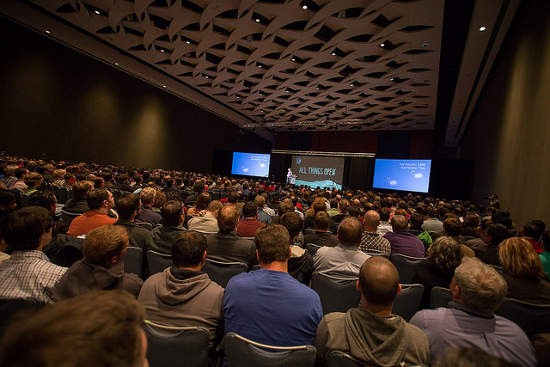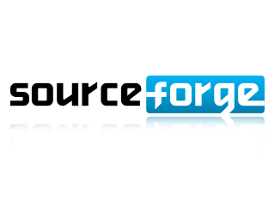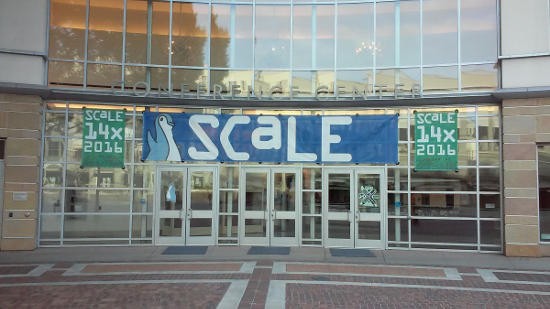I’d like to start off by welcoming new members to our also new FOSS Force community membership program. We are grateful for the support you’ve already shown for FOSS Force by joining us as a member, and we’re eagerly anticipating the time when our membership grows to the point where we can begin working in earnest to build what is now primarily a simple membership program into a viable community. What direction will that community go? At this point, it would be premature to even hazard a guess. Much of that will be up to you.
FOSS Force
The FOSS Force Quiz
How well do you know the people behind the different FOSS communities? Do you know the names of the people who are behind the software we use daily? Would you recognize the faces of the people who fight to keep free software free by helping enforce the GPL or by working on software patent reform? How much do you know about the people who diligently work to support free and open standards so that the digital age belongs to all of us instead of to a handful of corporations?
Would you like to test your knowledge of the people of FOSS? Take our quiz. We have eighteen questions, each concerning a person considered to be a leader in the FOSS world. Have we left anyone out? You betcha — starting with you. The way we see it, each and every one of us, whether we merely use FOSS at home, work to keep FOSS software maintained or fight the good fight to keep free tech free, is equally as important.
Two down and one to go for the big Linux and FOSS conferences for the winter of 2016.
Today linux.conf.au 2016 gets cranked up for a five day run in the land down under for a big tent show where registration is sold out. This comes on the heels of another big show which folded its tent last night, FOSDEM 2016, the two day event that ran this weekend in Brussels. Both of these came after the most hyped SCALE ever — and evidently rightfully so. The first-of-the-year Linux and FOSS lovefest vacated the Pasadena Convention center a little over a week ago, not to return until March 2-5, 2017, a very late date for that event.
As the big winter events get entered in the record books, organizers of other conferences are already getting cranked-up for a full slate of events scheduled for this spring, so anyone who missed the chance to hobnob and rub shoulders with like-minded FOSS folks this winter need have no regrets, because a Linux or FOSS festival is certain to be coming to your neck of the woods soon.
These are the ten most read articles on FOSS Force for the month of January, 2016. 1. SourceForge and Slashdot Have Been Sold by Christine…
FOSS Week in Review
Thank goodness this week is over. After our Larry Cafiero spent last week “putting out fires,” as he puts it, at SCALE 14x, I’ve spent the last couple of days doing the same here at FOSS Force. It seems our article on Slashdot’s sale attracted some unruly types to the comments, forcing us to put the shields up on our comments site-wide for the first time in our nearly six year history. You can still comment, but you might have to wait a while for us to notice it and approve it for publication. We’ll take the shields down as soon as we determine it’s safe to do so.
Meanwhile, here’s the FOSS news highlights for the week…
SourceForge’s new owners aren’t exactly what you might expect to be purchasing a site that for all intents and purposes revolves around free and open source software. The new owners, SourceForge Media, is a subsidiary of BIZX, and while that may sound like some huge and gigantic mega corporation, it’s an LLC owned by Southern California residents Roger and Logan Abbott, who are probably either father and son or brothers, we’re not sure. What we do know is that their background is in telecommunications, not exactly the sort of business experience you’d expect for someone entering the share-and-share-alike world of FOSS, where there’s no such thing as vendor lock-in.
The FOSS Force Poll
Inquiring minds wanted to know, so we asked. When choosing what to run on a machine — we’re talking computing machines running GNU/Linux here — what’s more important, the choice of distro or which desktop environment to run? We began asking the question among ourselves several weeks back when we were running our “best distro” poll and a few commenters observed that the desktop might be a more important metric for most users, since it’s the desktop that supplies the interface with which the user interacts. Good point, we thought.
So we put it to you in a poll that asked, “Which matters most to you: The GNU/Linux distribution you use or the desktop environment?” The poll went up on Sunday and on Monday we published an article introducing it. The poll concluded this morning, shortly after midnight EST.
Slashdot Media, which owns the popular websites SourceForge and Slashdot, has been sold to SourceForge Media, LLC, a subsidiary of web publisher BIZX, LLC. Financial terms of the sale were not revealed in the press release announcing the sale, which was published today on the website EIN News.
This afternoon I exchanged a few emails with Logan Abbott who is one of the owners of BIZX and the president of the SourceForge Media subsidiary which he said “was formed for the purposes of this transaction.”
Gaming on Linux
Hopefully, everyone who was able to attend enjoyed SCALE 14x this past weekend, especially the Game Night which went off without a hitch, thanks to the SCALE staff and the efforts of a certain FOSS Force gaming writer. There were a few presenters with interesting Gaming information, and others with plans later down the pipeline that can be expanded upon later
To start the conference off on Thursday morning, Jorge Castro gave a speech regarding “Gaming on Ubuntu” as part of UbuCon. In only 15 minutes he was able to deliver a State of the Union address on gaming on Linux distros, particularly Ubuntu. He covered the pros and cons, and talked about Steam and Linux getting next gen titles. Most helpful was a reference to multiple Personal Package Archives for the Linux gamer for controllers and new drivers, as well as the proper hardware to use to complement Linux gaming. This was followed by a presentation by Didiers Roche discussing Ubuntu Make, a command line tool for developers of many kinds.







